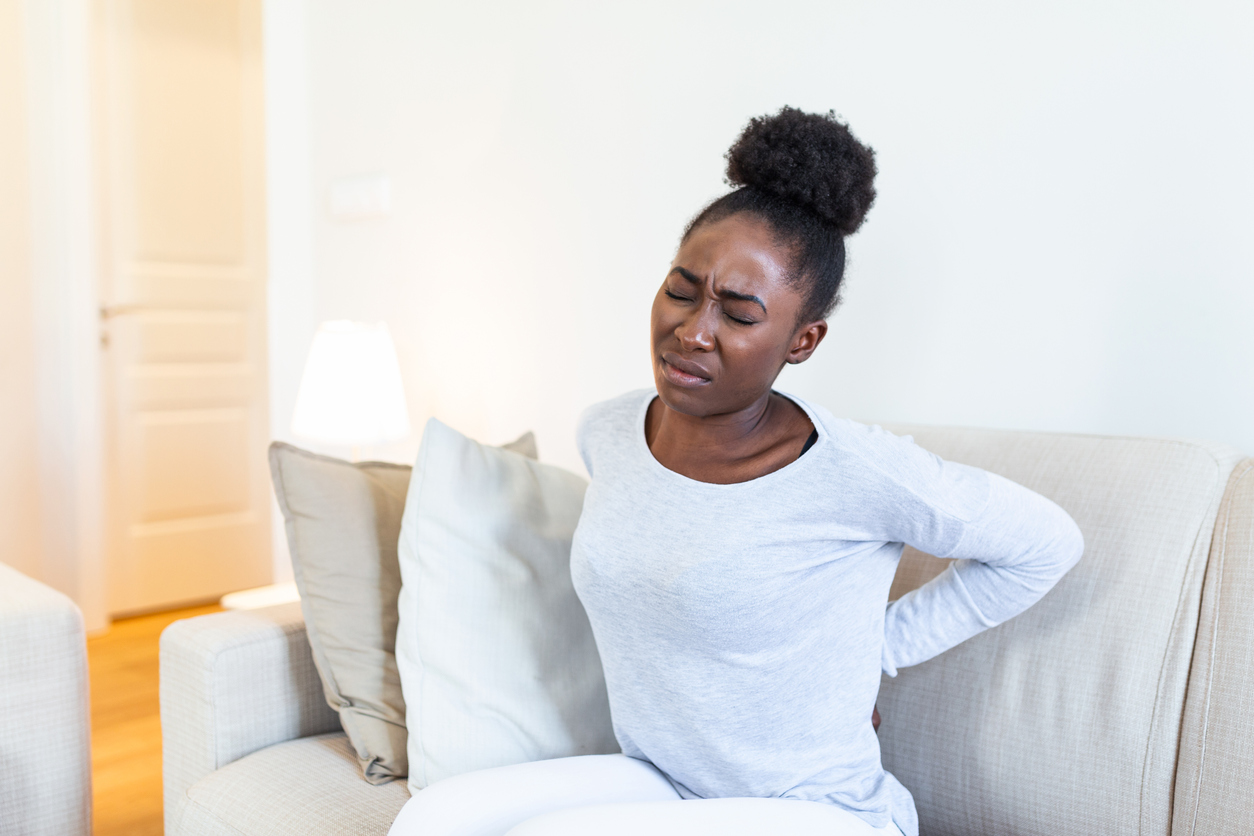Back pain is a common problem. According to the National Institute for Neurological Disorders, 80% of adults experience back pain at some point in their lives. And research from the UK’s National Health Service (NHS) shows that it’s currently the leading cause of disability.
Most back pain passes on its own, but there are times when it’s best to see a doctor. To help you work out how to treat your pain, here are some common causes of back pain and how to tell if your back pain is a sign of a more serious medical condition.
Why does my back hurt?
Most back pain is non-specific and caused by straining your back muscles. You may have strained your muscles while lifting something heavy or sprained a ligament while bending or twisting. Minor problems with the soft tissue between the bones of your spine can also cause non-specific back pain, but it can be difficult to pinpoint the exact cause of back pain.
Non-specific back pain normally goes away on its own. There’s generally no need to see a doctor unless your pain lasts for longer than 4 to 6 weeks.
However, sometimes, back pain can be a sign of a more serious medical condition. For example, a sharp pain in the back may indicate that you have a slipped disk.
Back pain can also be linked to:
- sciatica
- cauda equina syndrome (damaged nerves at the base of the spine)
- joint disorders like osteoarthritis
- infection
- certain forms of cancer
Red flags and worrying symptoms
You should seek immediate medical attention if you have back pain and:
- numbness or tingling around your bottom or genitals
- difficulty peeing
- loss of bladder or bowel control (incontinence)
- weakness of any leg or foot muscles
- a high temperature (38C or above)
- unexplained weight loss
- a swelling in your back
You should also see a doctor if your back pain doesn’t get better after resting or seems to get worse at night.
Cause of back pain with numbness or tingling in your bottom or genitals
Back pain with numbness or tingling in your bottom or genitals can be a sign of cauda equina syndrome, a rare but potentially dangerous condition that occurs when the nerves at the base of your spine are damaged.
Cause of back pain with muscle weakness, loss of bladder control or difficulty peeing
Back pain with muscle weakness, loss of bladder or bowel control, or difficulty passing urine can also be a sign of cauda equina syndrome. If you have 1 or more of these symptoms, it's best to go to the emergency department.
Cause of back pain with leg tingling, numbness or weakness
Back pain with a strange tingling sensation and numbness or weakness in certain areas of your legs can be a sign that you have a slipped disk. Slipped disks usually get better on their own, but see a doctor if the pain stops you from getting on with your everyday activities or you’ve been in pain for a long time and it doesn't seem to be getting better.
Cause of back pain with fever or weight loss
Back pain that’s accompanied by a fever or unexplained weight loss can indicate an infection or, in rare cases, the spread of certain cancers.
Cause of back pain at night and stiffness
Persistent back pain that gets worse at night and is accompanied by stiffness or eased by physical activity, can be a sign of osteoarthritis, a condition that causes joints to become stiff and painful.
Self-care advice for back pain
If you don’t think your symptoms need immediate attention, there are things you can do at home to ease the symptoms.
You’ll find some useful self-care tips in this article on treating back pain at home.



